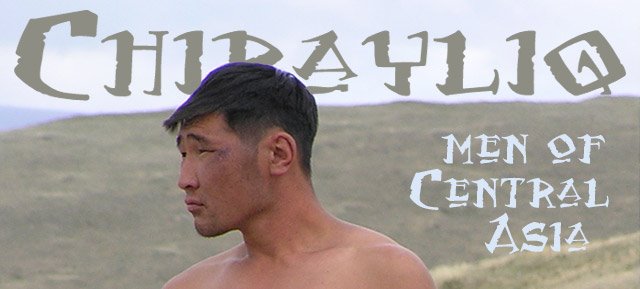Haapasalo tries very hard to act like an ordinary ignorant guy, but the schedule of the series shows that somebody has been doing some proper research. As the starting point for his journey, he chooses Kazan, the capital of the Republic of Tatarstan, and devotes much time to the special cultural and religious mix of the thousand-year-old city. It is a necessary historical lesson for the Finnish audience who may not know about the role of Islam in Russian history, and the close contacts between the speakers of Finno-Ugric and Turko-Tatar languages. In fact, their fate has often been intertwined - their cultures have mixed with each other as much as with the Slavic-speakers; languages and religions have been switched back and forth. But this is a long story, and in this post, I will only show some entertaining screencaps, which do not reflect the full scope of the first episode.
Ville Haapasalo meets an imam in Kazan, who reminds us of the necessity to teach children not to discriminate people according to race, nationality or religion. This interesting conversation contrasts a conflict-torn Europe with a harmonious Tatarstan - I won't go into much more detail about the complicated reality behind those images, but there are certainly lessons to be learned from the Tatar balancing act.
Talking about the many nationalities living and working in Kazan: "Everyone can do something for their nation." Farid is Ville's guide in Kazan. He is an event organizer and a perfect diplomat, a Tatar in other words ;)
Boys cheering for the football club Rubin Kazan.
Ville also visits a stable with the "fastest horses of the world". Many of them seem to be gifts to the former premier of Tatarstan, Mintimer Shaimiyev. The horses have their own solarium...
The akhal-teke Nurik is a gift from Nursultan Nazarbayev, the president of Kazakhstan. He refuses to do tricks on command...
Random doggy (for Tinet).
One problem with this programme is that we don't learn the names of a lot of important people whom Haapasalo interviews. Here are two hobby ethnographers who collect folklore among the Mari people and publish their results on their own website, for the interest of the general public, as Ville himself notes. So why not make it available for us?
One of the ethnographers looks a lot like Rudolf Nureyev in profile, only with dark hair. He also skipped the glass of vodka that came with the dinner. I wonder if he is Tatar? Of course, they both could be - many Tatars enjoy vodka, too...
This was only half of the programme, but if you live in Finland you can watch the whole thing here.













2 comments:
Great documentary! I seem to remember reading somewhere that adherents of the Mari traditional religion also tend to avoid alcohol.
I like the fact that Ville really tries to understand and interact between Finnish, Finno ugrian, Russian, Tatar, etc cultures. And not trying to over rule one over another.
Orchestrated or not, pre planned or not but this is a great series.
Post a Comment